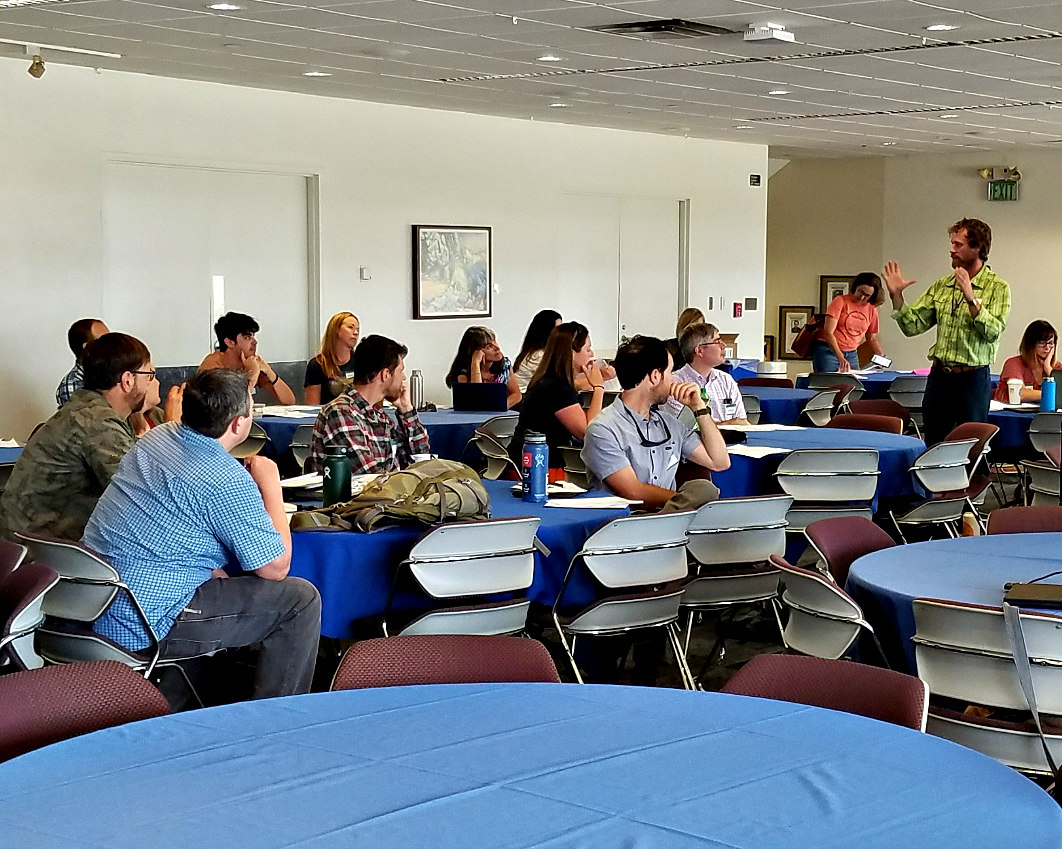
This work is part of Idaho’s NSF EPSCoR RII Track-1 award, Idaho Community-engaged Resilience for Energy-Water Systems (I-CREWS), that aims to address the impact of climate, population, and technological change on energy-water (E-W) systems. Primary objectives are to: (1) characterize E-W systems for a range of resilience strategies; (2) model and represent E-W systems and their resilience options; (3) determine alternative E-W futures for communities; and (4) develop the next generation of diverse scientists, engineers, and decision makers able to contribute to solutions for E-W resilience. This “Community of Practice,” also known as CoP, will work to better understand the needs of Idaho’s 2-4 year educators, their students and communities, and help expand participation within I-CREWS research. While this group focuses on 2- and 4-year educators, all meetings are open to interested individuals from any community or institution.
By engaging Idaho’s 2-and 4-year college educators, I-CREWS aims to reach students and community at a greater level. Through the Communities of Practice, I-CREWS is able to inform, discuss, develop, and implement E-W systems literacy within and among I-CREWS component teams and the communities served.
The I-CREWS team is working to bring community members into discussions and exchange ideas around topics at intersections of Energy-Water (E-W) systems. This project provides professional development opportunities related to E-W systems and develops a framework for E-W systems literacy aligned with Idaho General Education Matriculation (GEM) competencies.
